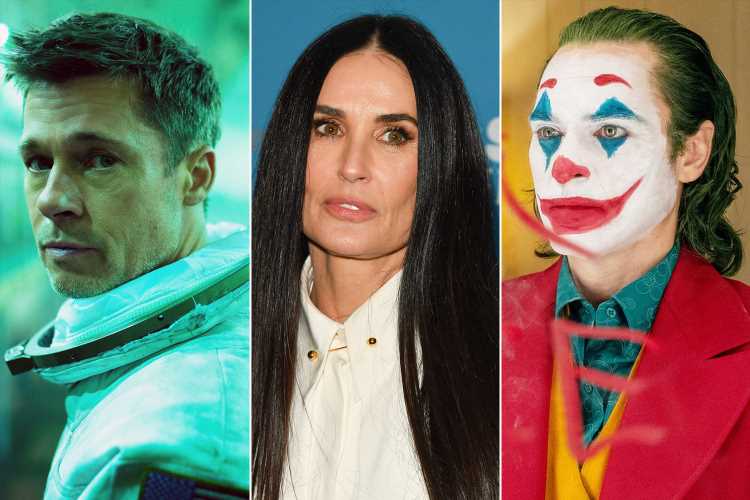When Jennifer Lopez’s infamous interview with Movieline resurfaced on Thursday, I thought: How fun.
And how different to most of Hollywood now, which is such a joyless place, pushing out joyless products full of dire warnings, safe spaces and moral rectitude.
Last Sunday’s Emmys were possibly the most boring ever, its ratings an all-time low. Brad Pitt, one of our last true movie stars, is currently in a somnambulant space epic. His last film, an ostensible ode to Hollywood, revolved around the Manson family.
We have been warned by none less than the United States Army that fall’s next big movie, “Joker,” is probably a clarion call for mass-shooter incels targeting multiplexes.
And Demi Moore, once the highest-paid actress on the planet, has just published “Inside Out,” her very grim memoir.
Moore writes of her rape at 15, the assailant paid $500 to her alcoholic mother; her struggles with drugs, alcohol and an eating disorder; her claims that her much-younger husband Ashton Kutcher pressured her into threesomes and back into substance abuse, then cheated on her with, among others, a 21-year-old friend of her own daughter; miscarrying at six months and subsequent failed IVF attempts; her previous marriage to Bruce Willis ruined by his cheating and resentment of her fame.
Nothing, it seems, has been left out. None of it’s good. And these are the selling points!
It’s all so depressing. And, perhaps, not surprising: Pop culture, after all, reflects our mood at any given moment, and right now that mood is best described as anxious, depressed, scared, angry. The country is shot through with pessimism — over President Trump (whether you’re for or against), over climate change — the current face of which is a very angry 16-year-old girl — over mass shootings, “fake news,” terrorism, recession fears, immigration.
Everything, it seems, is terrible. Except it isn’t.
As Steven Pinker wrote in his recent book “Enlightenment Now: The Case for Reason, Science, Humanism and Progress,” we, as a planet and a people, are better off than at any time in history. Technology is helping even the poorest gain access to better, more financially beneficial lives. The worldwide trends for peace, prosperity, safety, lifespans, health and yes, happiness, all go in one direction: Up.
So why can’t we have joy in the one place we typically seek it — Hollywood? Even the year’s biggest Marvel movie ended (spoiler alert) with the death of Tony Stark.
Currently, I’m reading one of the all-time great Hollywood memoirs: “The Kid Stays in the Picture,” published in 1994 by now-89-year-old producer Robert Evans. What’s most striking about the book — and I’m in the middle, before the cocaine trafficking and suspected involvement in a murder, but we’ll see how it goes — is how joyful it is. Each page practically buzzes with one sentiment: “Can you believe it?” Evans can’t. He can’t believe he’s a failed actor running a Hollywood studio, or that he knows Jack Nicholson, or that he marries America’s sweetheart at the height of her fame.
And when that sweetheart, Ali MacGraw, leaves Evans for her co-star Steve McQueen, Evans blames himself. But mostly he dishes and bitches and it’s all in good fun.
So yes to J.Lo’s 1998 Movieline interview! Yes to a pre-social media, pre-packaged profile that’s actually revealing! Yes to a starlet talking trash about her contemporaries, naming her sleaziest male-costars, fighting for more money and not caring if she sounds greedy (“I want to make as much or more as Demi Moore when it’s my time”), to talking unironically about “my craft” and declaring that of all the girls in Hollywood, “I’m the best.”
Now that’s fun.
Source: Read Full Article

